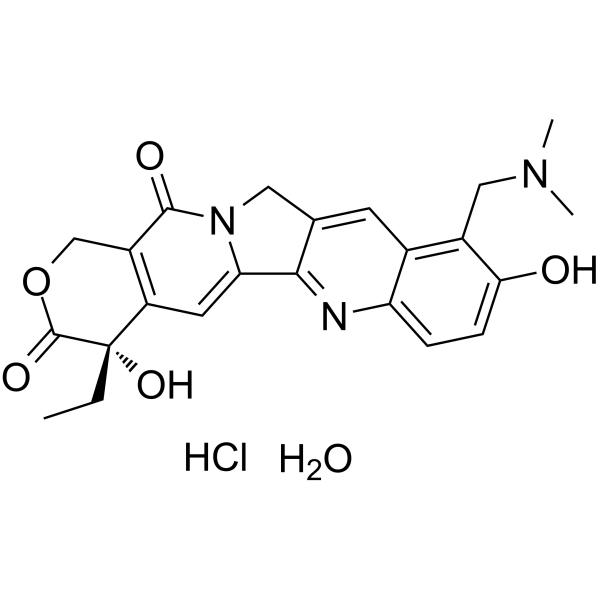1044663-62-8
| Name | Topotecan hydrochloride hydrate |
|---|
| Description | Topotecan hydrochloride hydrate is an orally active and potent Topoisomerase I inhibitor. Topotecan hydrochloride hydrate induces cell cycle arrest in G0/G1 and S phases and promotes apoptosis. Topotecan hydrochloride hydrate shows anticancer activity[1]. |
|---|---|
| Related Catalog | |
| Target |
Topoisomerase I |
| In Vitro | Topotecan hydrochloride hydrate obviously inhibits proliferation of human glioma cells and glioma stem cells (GSCs) in a dose- and time-dependent manner[1]. Topotecan hydrochloride hydrate (0-40 μM) obviously inhibits the cell viability compared with the control groups, in a dose-dependent manner[1]. Topotecan hydrochloride hydrate shows anti-proliferation activity against U251, U87, GSCs-U251 and GSCs-U87 cells, with IC50 values of 2.73±0.25, 2.95±0.23, 5.46±0.41, and 5.95±0.24 μM, respectively[1]. |
| In Vivo | Topotecan hydrochloride hydrate (0.5, 1.0, and 1.5 mg/kg; Orally, daily) causes greater reduction in microvascular density in an ovarian cancer model, but the mice treated with 1.5 mg/kg daily, oral Topotecan show decreased food intake, and a lesser antitumor effect[2]. |
| References |
| Molecular Formula | C23H26ClN3O6 |
|---|---|
| Molecular Weight | 475.92 |
